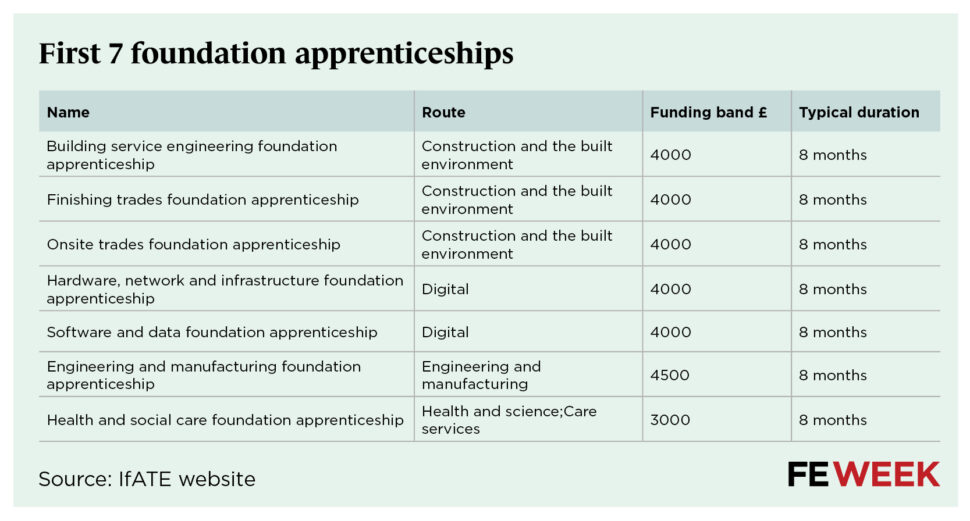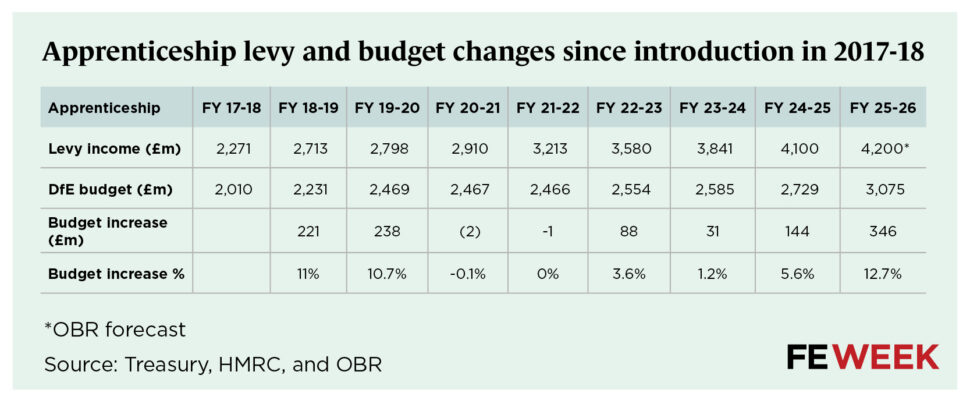The Department for Education’s top civil servant has said the government’s 6,500-teacher recruitment target is “underway” but could not provide “fine detail” about how the pledge will be delivered in colleges.
Susan Acland-Hood, permanent secretary in the DfE since 2020, appeared in front of MPs on the public accounts committee yesterday to discuss teacher shortages in colleges and schools.
Acland-Hood, joined by director general for skills Julia Kinniburgh and Juliet Chua, director general for schools, were subject to questioning on the findings of a recent National Audit Office report into teacher recruitment.
The report, published last month, found that the Labour government could not explain where the 6,500 target came from or provide a breakdown of how it was being delivered. It also revealed the target will still lead to an FE teacher shortfall as DfE has estimated between 8,400 and 12,400 FE teachers are needed by 2028/29.
Here are the main highlights from yesterday’s hearing…
College teacher targets?
Acland-Hood was asked directly how the government’s 6,500 target for new teachers in schools and colleges came about, how it will be delivered and how new teachers will be distributed across schools, secondary schools and further education colleges.
She explained the target was based on “a range of different factors that represented some of the pressures on teacher numbers across schools and colleges,” which include vacancy rates and staffing demands.
But when pressed on how many would be allocated to colleges, Acland-Hood was unable to answer as that was “fine detail that we will have to hold on announcing until after the spending review” which is due next month.
The pledge was one of Labour’s flagship education policies in its general election manifesto last year.
She added that delivery to meet the target was “underway” and the government was seeing “positive signs” of its existing teacher recruitment policies paying off.
“We can see both action that we’ve taken and outcomes starting to happen that relate directly to that 6,500 target,” she said.
Examples given included a 2,000 increase in secondary school teachers starting training this year compared to last year, an additional 1,000 applying to start training next year, and forecasts for 2,500 school teachers to remain in the profession following last year’s 5.5 per cent pay rise.
Acland-Hood said “we’ve also seen those numbers coming through and the action happening in FE as well” but didn’t provide examples.
But when asked by the chair of the education select committee Helen Hayes what the baseline was to calculate an increased 6,500 target, Acland-Hood said the DfE hadn’t set a specific year as a baseline, but it has to “relate to this parliament”.
“In other words, it’s got to be 6,500 more than it was before you started. Otherwise, it doesn’t mean anything, does it?” she added.
Hayes replied: “It sounds like it’s underway but you don’t know what it is.”
Acland-Hood then said: “We know that we need to provide more teachers in the thousands, and we know that we’re seeing more teachers coming through in the thousands.”
‘We are concerned about the position in FE’
Acland-Hood said the department was “concerned” about the FE vacancy rate being “significantly” higher than in schools.
The NAO report found FE was the “worst affected” type of education provider by long-term recruitment pressures with 5.1 of every 100 teaching roles vacant in general FE colleges, amounting to 2,500 vacancies in colleges as opposed to 1,500 school teacher vacancies.
The permanent secretary said there was a “circularity” in the challenges seen in FE, meaning the vacancies were in disciplines where there are shortages in the wider labour market from which colleges recruit, particularly in construction.
“People who are experts in those disciplines tend to be able to command very high salaries. Then it gets harder for FE colleges to recruit those people to teach the next generation,” she said.
She added that the government has extended the list of subjects to provide the £6,000 targeted retention incentive payments to identify those shortage areas in FE.
Recent data of the initiative shows nearly 6,000 FE teachers have been paid the chunky government bonus so far – worth a combined £34.1 million. Of those, 29 per cent went to building and construction teachers.
Kinniburgh revealed the retention payments would be evaluated next year.
FE feels ‘somewhat patronised’
Leaders in further education feel “somewhat patronised” when they’re told by ministers how important the sector is “in a way that simply isn’t reflected in the funding that it gets, according to Hayes.
Hayes was questioning the senior officials on DfE’s relationship with colleges over staff pay and described its teacher recruitment efforts as “welcome” but “not being delivered at scale”.
Kinniburgh responded that £400 million has recently been added to FE budgets, and pointed to “bursaries, Taking Teaching Further, and the targeted retention initiative” as steps taken. She insisted: “We’re really, really clear that we have higher vacancy rates in further education… and we are pushing new things all the time.”
“So it’s not to disagree with your analysis of where the funding is but we have done a lot, I think, in recent months,” Kinniburgh concluded.
Filling teacher gap with dual professionalism
One example was bringing in more people from industry to teach in FE colleges.
“There’s various projects going on at the moment,” she said. “One is a project being led by the Gatsby Foundation, who are working with Edge Hill University, where they’re setting up a training curriculum to bring people from industry to come and work in colleges so that they can do that, they can be what’s often called a dual professional.”
Kinniburgh added that she recently visited a college where she met a teacher who was a designer 2.5 days a week and a lecturer the rest of the working week.
“Various colleges have tried this and to good success. So for example, the City of Liverpool College, they say 80 per cent of their workforce are dual professionals, and they’ve worked really hard to create those links to their local employers to bring people in.”
She added that DfE was looking at how to extend and “expand” that shared practice.
It comes after scheme developers for lecturer reservist trial for the motor industry recently said they were struggling to get DfE to financially back their pilot.
Acland-Hood and Kinniburgh said they’re working on a “single front door” for recruitment across schools and colleges and trialling cross-sector “job show” events to allow applicants to explore all teaching routes.
FE workforce data collection ‘less mature’
Elsewhere, Kinniburgh acknowledged that DfE had been slow to roll out data collection for the FE workforce, but it was now working to make sure it had higher response rates.
“Our workforce model in FE is less mature than in school,” she said, adding that just two years of data has been recorded.
The NAO report found issues with DfE’s data collection of the FE workforce, primarily that it did not use the model to set targets for how many teachers it needs.
But Kinniburgh said it was focusing on encouraging more people to complete the data collection.
Currently, she said they get a 90 per cent completion rate from colleges but a “slightly lower” rate from independent training providers and others. Overall, DfE has recorded an 80 per cent in total.
The next data release is due next week, on May 29.
Colleges and schools ignore wellbeing charter
Only 17 per cent of eligible schools and colleges have signed up to DfE’s education staff wellbeing charter according to the NAO, a figure described as “not good enough” by Kinniburgh.
The voluntary charter, backed by the Association of Colleges, Ofsted and school teaching unions, could be due for a refresh off the back of low take up.
Kinniburgh said the DfE was actively trying to understand why so few colleges had signed up.
“We want more,” said Kinniburgh, adding that the DfE is exploring whether “a refresh of the push or the content” is needed.




